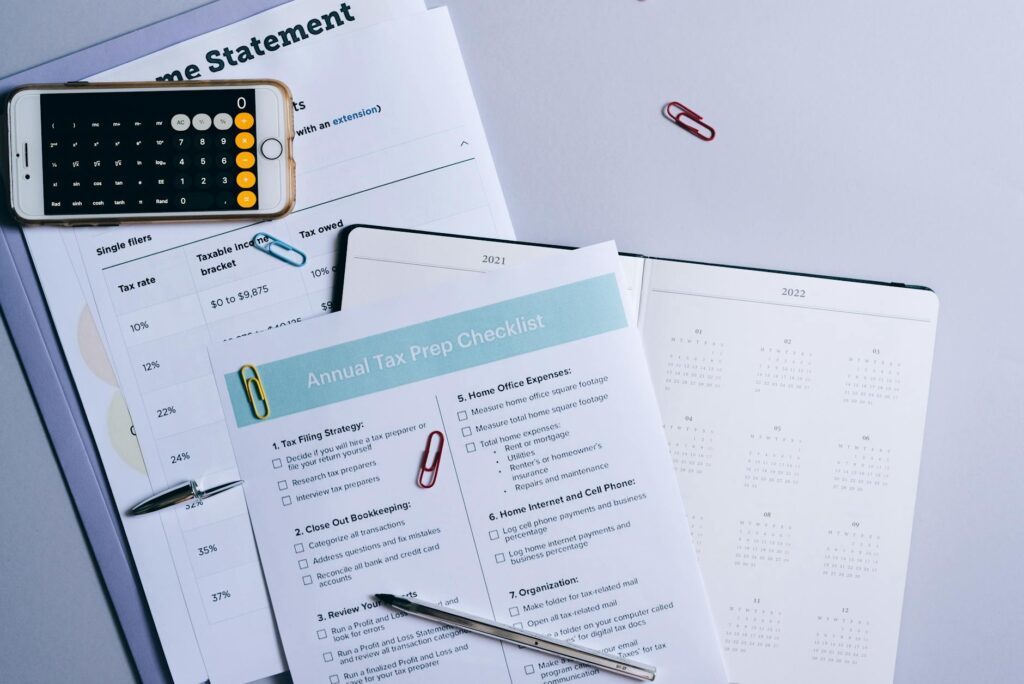Finding the right financial planner is a critical step towards achieving your financial goals. It’s not just about the numbers; it’s about finding someone who understands your dreams, fears, and unique financial situation. This ultimate checklist will guide you through the essential elements to consider when choosing a financial planner in the USA.
Understand Different Financial Planner Credentials
Financial planners come with various titles, certifications, and credentials. Some common ones include Certified Financial Planner (CFP), Chartered Financial Analyst (CFA), and Personal Financial Specialist (PFS). Understand what each credential means and the education, exam, and experience requirements behind them.
Identify What Services You Need
Financial planners offer a range of services, from investment advice to comprehensive financial planning, which includes budgeting, insurance, retirement, tax planning, and estate planning. Determine what services you need to meet your financial goals.
Consider the Planner’s Specialization
Some financial planners specialize in certain areas, such as retirement planning or wealth management for high-net-worth individuals. If you have specific financial goals or situations, consider a planner with a specialization that matches your needs.
Assess Their Experience
Experience is an important factor when choosing a financial planner. Look for someone with a proven track record of helping clients with similar financial backgrounds and goals as yours.
Review Their Clientele
Understanding who the planner typically works with can give you insights into their expertise and focus area. Ask about the types of clients they usually assist, such as retirees, business owners, or young professionals.
Examine Their Fee Structure
Financial planners can be paid through fees, commissions, or a combination of both. Fee-only planners are paid directly by their clients for advice, while commission-based planners earn money when clients purchase financial products. Consider which structure aligns best with your interests.
Ensure They Follow a Fiduciary Standard
A fiduciary is legally required to put their client’s interests ahead of their own. Ensure your financial planner adheres to a fiduciary standard to avoid potential conflicts of interest.
Check for Disciplinary History
It’s crucial to research if a financial planner has had any disciplinary actions or complaints. Resources such as the SEC’s Investment Adviser Public Disclosure website can provide this information.
Ask for References
Requesting references from current or former clients can provide valuable insights into the planner’s reliability, communication style, and effectiveness.
Schedule a Consultation
Many financial planners offer a free initial consultation. Use this opportunity to gauge your comfort level with the planner, inquire about their services, and understand their approach to financial planning.
Evaluate Communication Style
It’s important that your financial planner communicates in a way that you understand. They should be able to explain financial concepts clearly and be responsive to your questions and concerns.
Understand Their Investment Philosophy
Financial planners have different investment philosophies and strategies. Make sure their approach to investing aligns with your risk tolerance and financial goals.
Consider Their Use of Technology
Technology plays a big role in financial planning today. Evaluate the planner’s use of technology for tasks like portfolio management, financial tracking, and communication.
Look at Their Network
A good financial planner often has a network of professionals, such as accountants and lawyers, to refer to their clients when necessary.
Trust Your Instinct
After considering all factors, your gut feeling about whether you can trust and work with a financial planner is crucial. Trust is fundamental in a financial planning relationship.
Plan for the Long Term
Choose a financial planner who is interested in building a long-term relationship with you, rather than just selling products or services.

Review and Decision
After gathering information and meeting with potential planners, take your time to review and decide. Choosing the right financial planner is a decision that can significantly impact your financial future.

In conclusion, selecting the right financial planner is a comprehensive process that involves understanding their credentials, evaluating their experience, and assessing their fit with your financial goals and personality. By following this checklist, you can find a financial planner who not only meets your needs but also works in your best interest.
Frequently Asked Questions
How often should I meet with my financial planner? The frequency of meetings should be based on your specific needs and financial goals. Generally, an annual review is recommended, but more frequent meetings may be necessary for significant life events or changes in your financial situation.
Can a financial planner help with debt management? Yes, many financial planners can provide advice and strategies for managing debt effectively. It’s important to discuss your debt situation during the consultation.
What’s the difference between a financial planner and a financial advisor? The term “financial advisor” is a general title that encompasses various types of financial professionals, including financial planners. A financial planner specifically provides advice on how to manage your finances and plan for your financial future.
Is it worth paying for a financial planner? Investing in a financial planner can be beneficial for achieving your financial goals, especially if you need guidance on complex financial decisions or developing a comprehensive financial plan.
How do I know if a financial planner is trustworthy? Look for a financial planner with reputable credentials, a clean disciplinary record, positive client references, and adherence to a fiduciary standard. These indicators can help ensure that you’re working with a trustworthy professional.



